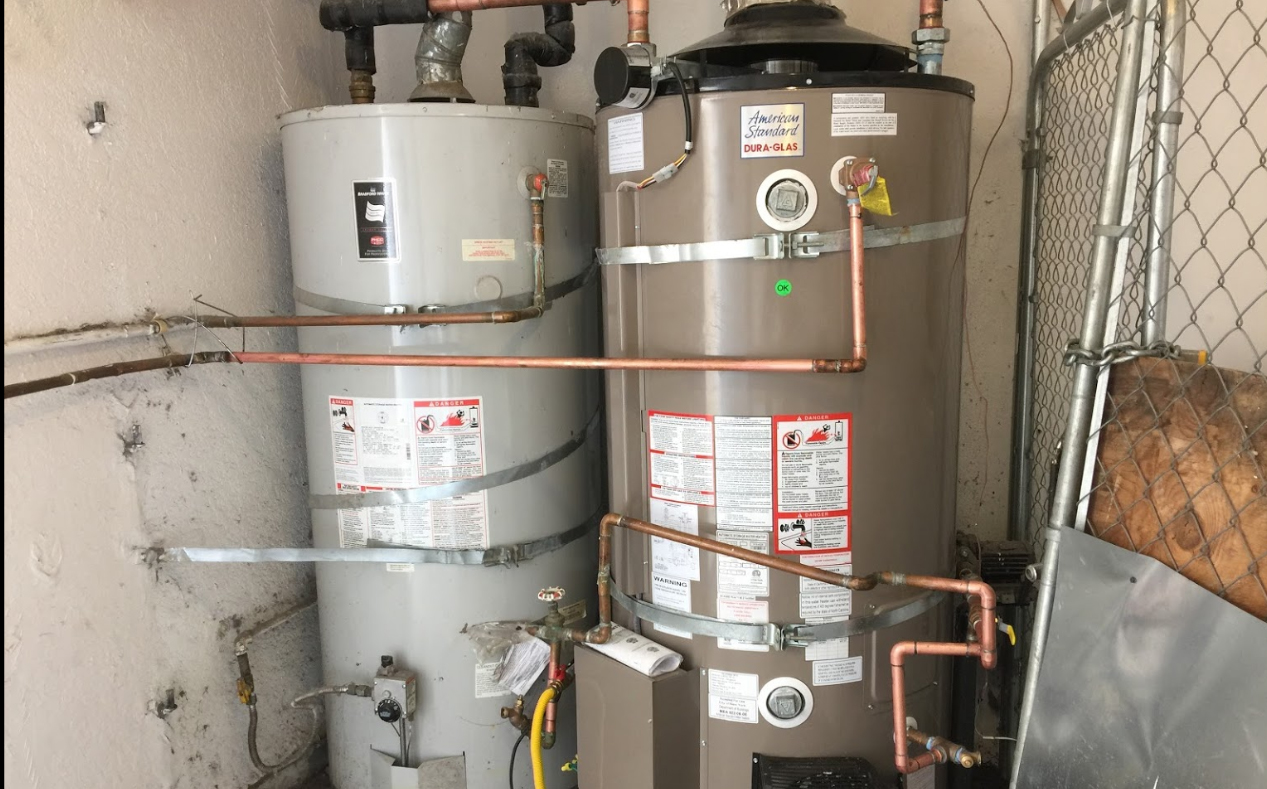Not sure if you should repair or replace the water heater in your home? Call 661-236-6089 for a free estimate.
It’s easy to forget about our water heaters as long as our hot showers aren’t cut short. You can maximize the life of your water heater by caring for it with regular maintenance and addressing problems as soon as they arise.
At TWS Palmdale Plumbing, we’re available to residents in Palmdale. Lancaster and Santa Clarita whenever your water heater requires maintenance.
Curious to hear what our previous clients have to say about us? Click here to visit our reviews page.
What causes water heater problems?
Water heaters can fail due to a variety of issues, ranging from rust to sediment buildup. Many of the problems that cripple water heaters go unnoticed and worsen, as homeowners neglect to have the units inspected.
As hard water passes through your water heater, calcium and other matter can build up at the bottom of your unit’s tank. The buildup of sediment can cut short the periods of hot water your heater delivers and it curtails the unit’s lifespan. Large buildups of sediments can cause your water to leak or burn out.
The buildup of sediment in your tank can also hinder your water heater’s sacrificial anode, which works to absorb and divert corrosion away from the interior of your water heater. When the sacrificial anode isn’t able to fully execute its job, corrosive agents in your water will create rust inside of your water heater.
How long do these units usually last?
The lifespan of water heaters usually ranges between 8 to 12 years. Routine maintenance plays a big part in lengthening the life of your unit. Your water heater’s sacrificial anode plays a large role as well, as your unit can decline quickly once the anode has worn out.
Your home’s hot water usage and your area’s water quality also affect the longevity of your water heater. Hard water and heavy usage could cause your unit to fail prematurely.
Should you repair or replace your unit?
When you spot problems with your water heater early on, repairing the unit can have lasting effects. Your water heater’s age and wear are the main factors to consider when determining if it’s more feasible to replace the unit or repair it. If you’re faced with constant leaks and inconsistent water temperatures, you could benefit in the long term by replacing the unit. In addition to costing you in repairs, an inefficient unit also costs you on your energy bills.
How can you avoid future problems?
Maintenance and responsive repairs are vital to limiting problems with your home’s water heater. An annual check up will ensure your unit is operating optimally and help you determine if any component should be replaced, such as an anode or a thermostat.




